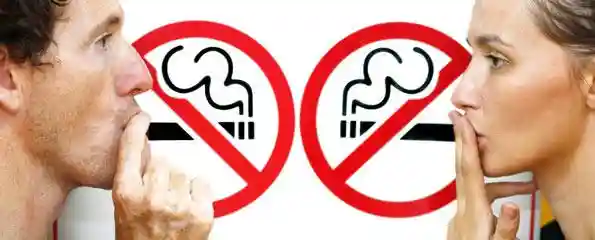Introduction: Why You Should Quit Smoking

Quitting smoking is one of the best decisions you can make for your health. Tobacco use leads to severe health complications including cancer, heart disease, and respiratory issues. Whether you're a long-time smoker or someone who recently started, understanding the effects of tobacco and the ways to quit is crucial.
This article will explore everything from the harmful effects of smoking to the medicines available for smoking cessation. You’ll learn about prescription medications like bupropion, varenicline, and other nicotine replacement therapy (NRT) options, and how they help you quit. If you want to quit and are looking for support, you’re in the right place.
The Health Impact of Tobacco Use
Short-Term and Long-Term Effects of Smoking
Tobacco affects nearly every organ in your body. Short-term, it increases your heart rate and blood pressure. Long-term tobacco use significantly raises your risk for chronic diseases such as:
- Lung cancer
- Chronic Obstructive Pulmonary Disease (COPD)
- Stroke
- Heart disease
Why People Smoke Despite the Risks
Many smokers start out of curiosity or social pressure, but nicotine cravings and addiction make it difficult to stop. Nicotine affects the brain, creating a rewarding sensation that reinforces smoking behavior.
Want to Quit? Understand Your Options
Set a Quit Date
Planning is crucial. Set a specific quit day and prepare yourself mentally and physically. Tell friends and family so they can support you.
Identify Your Triggers
Understanding what causes your cravings for nicotine helps you develop strategies to avoid them.
Get Support
Talk to your health care provider or join support groups. The Centers for Disease Control recommends professional help to increase your chances of success.
Quit Smoking Medicines and How They Work

Medicines have been proven to help people quit smoking for good. They work by reducing withdrawal symptoms, lessening the craving, or blocking the pleasurable effects of cigarettes.
Bupropion
Bupropion, also known as Zyban, is an antidepressant that also helps with smoking cessation. It reduces nicotine withdrawal and the urge to smoke.
How to Use Bupropion
- You’ll need a prescription medicine from your doctor
- You typically start taking bupropion 1-2 weeks before your quit date
- It can be used at the same time as nicotine patches
- Ask your health care provider if bupropion is right for you
Side Effects of Bupropion
Some people report trouble sleeping, dry mouth, or irritability. If you experience serious side effects, stop taking the medicine and consult your doctor.
Varenicline
Known by the brand name Chantix, varenicline helps reduce cravings and withdrawal symptoms by acting on the same receptors in the brain as nicotine.
How to Take Varenicline
- You typically start taking varenicline a week before your quit day
- It helps block the enjoyable effects of smoking
- Talk to your doctor about whether it’s suitable for you
Nicotine Replacement Therapy (NRT)
Types of Nicotine Replacement Products
- Nicotine patch
- Nicotine gum
- Lozenge
- Nicotine nasal spray
These products can help by delivering a small dose of nicotine without the harmful substances in cigarettes.
Benefits of NRT
- Reduces cravings
- Minimizes nicotine withdrawal symptoms
- Available without a prescription (some forms)
Ways to Use Nicotine Replacement Therapy
Use as directed on the label or consult your health care provider for advice. Sometimes combining methods, like bupropion along with nicotine patches, increases the chances of success.
Prescription Medicine vs. Over-the-Counter
You’ll Need a Prescription For:
- Bupropion (Zyban)
- Varenicline (Chantix)
Available Without a Prescription:
- Nicotine gum
- Lozenge
- Nicotine patch
Talk with your healthcare provider to decide the best option.
Help People Stop Smoking: Support Systems Matter
Care Team and Counseling
Your care team can include doctors, therapists, and support groups who provide support to help you get through the process.
Follow-Up and Monitoring
Monitoring your progress improves your chances of success. Schedule regular check-ins with your health care provider.
Digital Resources
Explore our dedicated blog post on how to quit smoking weed if you’re dealing with both forms of tobacco use.
For additional independent guidance, check this blog from Verywell Mind, which offers helpful tips without selling products.
Quit Day and Beyond: How to Stay Quit
Recently Quit? Here's What to Expect
- Irritability
- Difficulty concentrating
- Increased appetite
These withdrawal symptoms are normal and will lessen over time.
Strategies to Stay Quit
- Avoid smoking triggers
- Practice stress management techniques
- Use nicotine replacement when needed
Plan to Quit: Build Your Custom Strategy
Step-by-Step Plan
- Choose your quit day
- Start bupropion or other medications if prescribed
- Inform friends and family
- Prepare your environment by removing cigarettes
- Follow a structured program with your care team
What if You Haven’t Been Able to Quit Yet?
That’s okay. Many people need multiple attempts to quit before they succeed. The important thing is to keep trying.
The Role of FDA and USPSTF
Approved by the FDA
All the quit smoking medicines mentioned here are approved by the FDA, which ensures their safety and efficacy.
US Preventive Services Task Force (USPSTF)
This panel of experts recommends smoking cessation in adults as a critical step to improving public health.
Final Thoughts on How to Quit Cigarettes and Stay Smoke-Free
Quitting smoking is a journey, not a one-time event. With the right combination of medicine, support, and mindset, you can break free from tobacco cravings and enjoy a healthier life. Whether you choose bupropion, varenicline, or nicotine replacement therapy, the key is to start with a solid plan and seek help.
Disclaimer: Always talk to your doctor or ask your health care provider before starting any treatment. Each person is different, and what works for one may not work for another.






